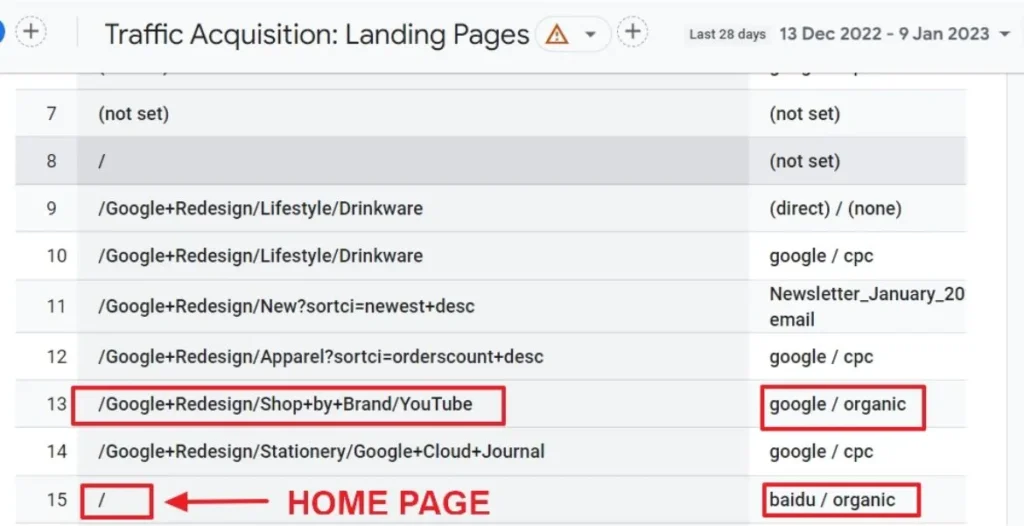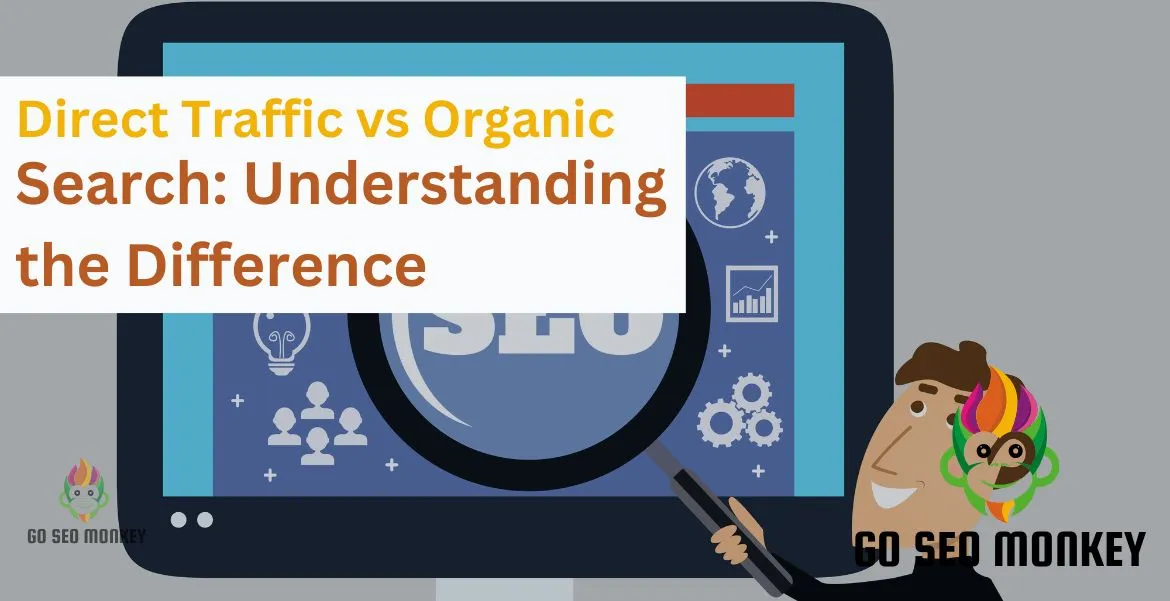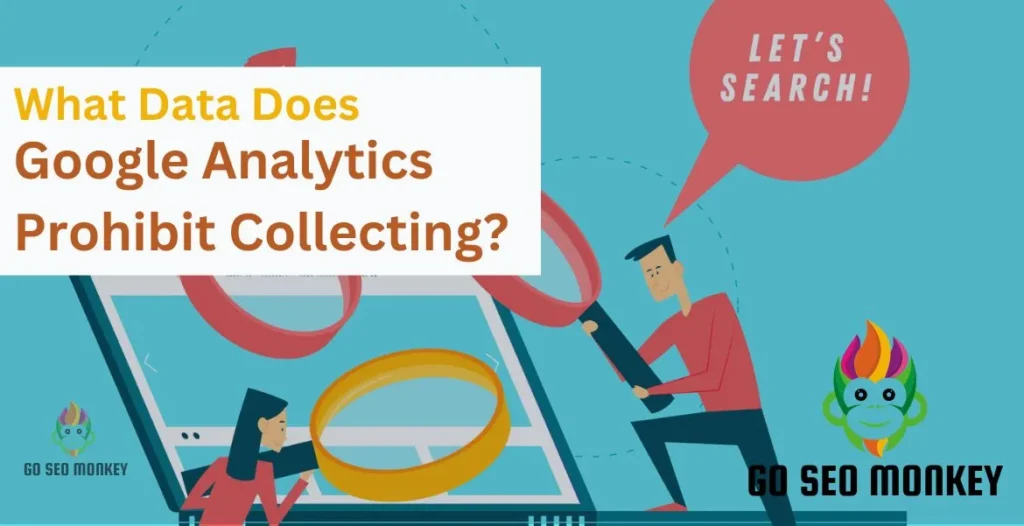Table of Contents
ToggleWhen it comes to analyzing website traffic, understanding where your visitors are coming from is crucial. Two of the most common traffic sources that site owners deal with are direct traffic and organic search. But what do these terms mean, and why does the difference matter? Let’s analyze this process in a sequential manner.
What is Direct Traffic in Google Analytics?
Direct traffic refers to users who access your website without a detectable referral source. This type of traffic is recorded in Google Analytics when no referral information is passed along, which typically happens when someone types your URL directly into their browser or accesses your site via a saved bookmark.
Common Sources of Direct Traffic
Direct traffic isn’t just people typing in URLs. It can come from offline sources, like print ads or emails. If the link lacks tracking parameters, Google Analytics categorizes it as direct traffic. This makes it important to distinguish legitimate direct visits from mislabeled traffic.
Understand how direct traffic impacts your analytics today!
Get expert guidance on decoding direct traffic metrics for clearer, more actionable analytics insights today!
What is Organic Search?
Organic search refers to traffic that comes from search engines like Google, Bing, or Yahoo. Visitors find your site through non-paid search engine results, driven by your SEO efforts. These visitors are actively searching for information, services, or products and click through to your site via the search engine results page (SERP).
Why Organic Search Traffic is Important for SEO?
Organic traffic is crucial because it’s usually highly targeted. These visitors are seeking solutions, and if your SEO strategies are on point, they’ll find your content valuable. A steady stream of organic traffic reflects how well your site is optimized for search engines and how effective your content is.
Direct Traffic vs Organic Search: A Detailed Comparison
User Intent in Direct Traffic
Repeat visitors, who are already aware of your brand, constitute a significant portion of direct traffic. They know where they’re going, so they’re more likely to convert into loyal customers or return visitors. It’s a sign of brand loyalty or previous engagements.
User Intent in Organic Search
In contrast, organic search traffic reflects users with a specific problem or question in mind. Their intent is research-focused, so they may be less familiar with your brand initially. However, these users are often more open to discovering new brands, which means there’s a higher chance to capture their attention if your content ranks well.

Direct Traffic vs Search Traffic: Are They the Same?
Understanding Search Traffic
Search traffic includes both organic and paid search results. It encompasses all traffic that originates from search engines, whether it’s from SEO efforts (organic) or paid ads (PPC). Therefore, direct traffic and search traffic are distinct categories.
How Direct Traffic Differs from Search Traffic?
While search traffic is driven by keywords and user queries, direct traffic doesn’t rely on search engines at all. The user already knows your website’s address and goes straight to it, bypassing the search results altogether.
Direct Traffic vs Referral Traffic
What is Referral Traffic?
Referral traffic comes from visitors who find your website through links on other websites. When a user clicks a link on another site (like a blog or social media platform) and lands on your page, that counts as referral traffic.
Direct vs Referral Traffic: Key Differences
The primary difference here is the source of the traffic. Direct traffic comes without a referring source, while referral traffic is passed from another site. Understanding both helps you track your marketing efforts more accurately.
Google Analytics: Direct Traffic vs Organic Search
How Google Analytics Tracks Direct Traffic?
Google Analytics categorizes any visit with no referral source as direct traffic. If there’s no UTM tag or referral header attached to the visit, Google assumes it’s a direct visit.
How Google Analytics Tracks Organic Traffic?
Organic traffic, on the other hand, is easily tracked by Google Analytics as it comes from a known search engine. Google automatically categorizes this traffic under the “Organic Search” section of your acquisition report.
Difference Between Organic Search and Direct Traffic
Behavioral Differences Between Organic and Direct Visitors
Visitors arriving through organic search tend to spend more time researching, reading multiple pages, and engaging with content, while direct visitors may have a specific action in mind and leave after completing it.
Why Tracking These Traffic Sources Matters for Your Website?
Understanding the differences between these traffic sources allows you to refine your marketing strategy. Are your SEO efforts paying off with organic search traffic? Are users revisiting your site as direct traffic? Answering these questions helps optimize your content and user engagement.
1. Conversion Rates: Organic Search vs Direct Traffic
How Organic Search Can Drive Conversions?
Organic search traffic often results in high-quality leads because the visitors are actively searching for something. They’re more likely to convert if your site matches their needs and expectations.
Do Direct Traffic Sources Convert as Well as Organic Search?
Direct traffic can also have high conversion rates, particularly when the visitors are repeat customers or returning users. However, the intent differs; direct traffic may involve users already familiar with your brand, while organic search brings in new prospects.
2. The Impact of Direct and Organic Traffic on SEO
SEO Strategies to Boost Organic Traffic
To improve search engine rankings, effective SEO strategies integrate keyword optimization, backlink building, and relevant content generation. Enhanced search engine rankings lead to increased organic traffic and visibility.
Can Direct Traffic Help SEO Performance?
While direct traffic doesn’t directly impact SEO, a high volume of returning visitors can indicate strong brand loyalty, indirectly signaling to search engines that your content is valuable and authoritative.
3. Maximizing Website Potential: Direct and Organic Traffic
Best Practices for Boosting Organic Search Traffic
To boost organic traffic, focus on creating valuable, keyword-rich content that aligns with user intent. Use internal linking strategies, improve site speed, and ensure your website is mobile-friendly.
Enhancing Direct Traffic Without Losing Focus on SEO
For direct traffic, make your URL easy to remember and promote your website through offline channels like business cards, newsletters, and events. Ensure that your direct traffic strategies complement your SEO objectives.
4. User Behavior Analysis: Direct vs Organic Traffic
How Users from Direct Traffic Behave?
Direct traffic users often know exactly what they want, so their visits tend to be shorter and more focused on completing specific tasks like purchases or checking information.
Organic Search Behavior: What Makes It Different?
Organic search users are more exploratory. They might spend time navigating through multiple pages, reading blog posts, or comparing products, making their behavior more investigative.
5. Final Thoughts: Direct Traffic and Organic Search in 2024
Which Traffic Source Should You Prioritize?
Direct traffic and organic search are integral components of a comprehensive website strategy. Prioritizing one over the other depends on your business goals, but ideally, a balanced approach works best. Organic search facilitates discovery, whereas direct traffic cultivates loyalty.
Learn how to maximize your traffic sources effectively today!
Our specialists guide you in prioritizing traffic sources effectively!
Conclusion
To optimize both direct traffic and organic search, you need a strategic balance of SEO tactics, user experience improvements, and consistent content creation. At Go SEO Monkey, we specialize in developing customized SEO strategies that boost organic visibility while maintaining brand loyalty through direct traffic. Let us help you maximize your website’s performance by driving the right traffic to achieve your business goals.
FAQs
- What is the main difference between direct traffic and organic search?
Direct traffic refers to users who land on your website by typing in your URL or through untracked sources, while organic search traffic comes from users who find your site through search engine results. Organic traffic is driven by SEO efforts, whereas direct traffic indicates visitors already familiar with your brand. - How can I increase organic search traffic to my website?
To increase organic search traffic, focus on optimizing your website’s SEO. This includes keyword optimization, creating high-quality content, building backlinks, improving site speed, and ensuring mobile-friendliness. These efforts make it easier for search engines to rank your site higher, bringing in more organic traffic. - Is direct traffic beneficial for my SEO strategy?
Direct traffic doesn’t influence SEO rankings directly, but it indicates website loyalty to search engines. High volumes of returning direct visitors can indicate valuable content, which can indirectly help your SEO performance. - How does Google Analytics categorize direct traffic?
Google Analytics categorizes any visit without a referral source or UTM tags as direct traffic. This can happen when users type in the URL, access the site from a bookmark, or click an untagged link from offline sources like emails or print materials. - Which type of traffic has a higher conversion rate, direct or organic?
Both types of traffic can lead to conversions, but the conversion rates may differ. Direct traffic often involves returning visitors familiar with your brand, leading to higher conversion rates. Organic traffic usually comes from users discovering your site through search engines, which may require more nurturing but can still result in strong conversion rates if they find what they need.





